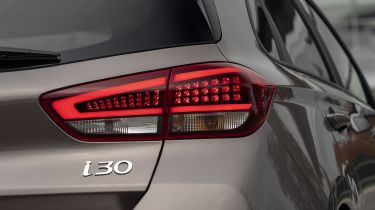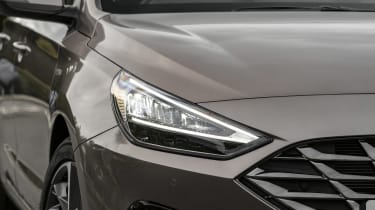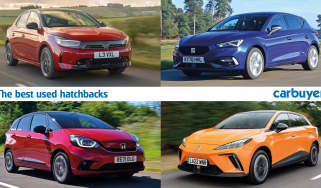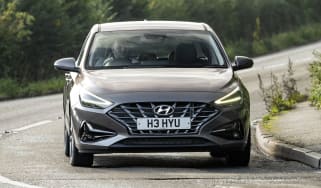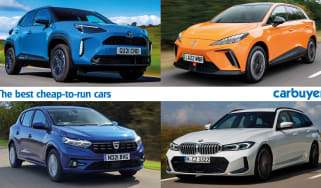Hyundai i30 hatchback - Reliability & safety
The amount of safety equipment fitted as standard to the Hyundai i30 is highly commendable
The Hyundai i30 takes safety very seriously indeed, and comes complete with the latest protective technologies. Impressively, many of these systems – including autonomous emergency braking – are standard, which is not something that can be said about the majority of the i30’s rivals.
Hyundai i30 reliability
The latest Hyundai i30 didn’t feature in our 2023 Driver Power but two other Hyundai models did. Best of the bunch was the Ioniq with an impressive 11th place out of the top 75 cars, while the Hyundai Kona SUV appeared in 16th place. There were also an incredible three of Hyundai’s sister brand Kia’s models in the top ten, too.
In the 2023 Driver Power manufacturer survey, Hyundai placed 17th out of 32 brands, which was six places down on the previous year and well below rival Kia’s sixth-place ranking. 21% of Hyundai owners reported an issue with their car in the first year, but while this isn’t a particularly impressive figure, Hyundai’s impressive five-year unlimited-mile warranty goes a long way to offering good peace of mind.
Safety
We’re genuinely impressed with the amount of standard equipment fitted to all models, and it has proved effective, netting the i30 a five-star score following Euro NCAP crash testing. It achieved 88% for adult occupant protection and 84% for child occupant safety.
Even the entry-level trim includes auto-dipping headlights, which dip when oncoming traffic is sensed, reverting to full beam when the road is clear. Lane-keeping assistance is also standard; this will take corrective action if you drift out of lane without indicating. Tired drivers, meanwhile, are taken care of by the fatigue warning system, which looks out for driving behaviours indicative of someone who needs a break.
The most significant safety system, however, is autonomous emergency braking (AEB). This is considered an incredibly important technology, which scans the road for obstacles and brakes the car if it senses an imminent collision you haven’t taken action to avoid. Industry experts reckon AEB can cut rear-end shunts by 38% and the system fitted to the i30 can also brake for pedestrians.
If that’s not enough reassurance, active cruise control is also offered as an option. This will match the speed of the vehicle in front. A blind-spot warning system is also available, as is rear cross-traffic alert, which will monitor when reversing, sounding a warning if vehicles are detected in the i30’s path.

